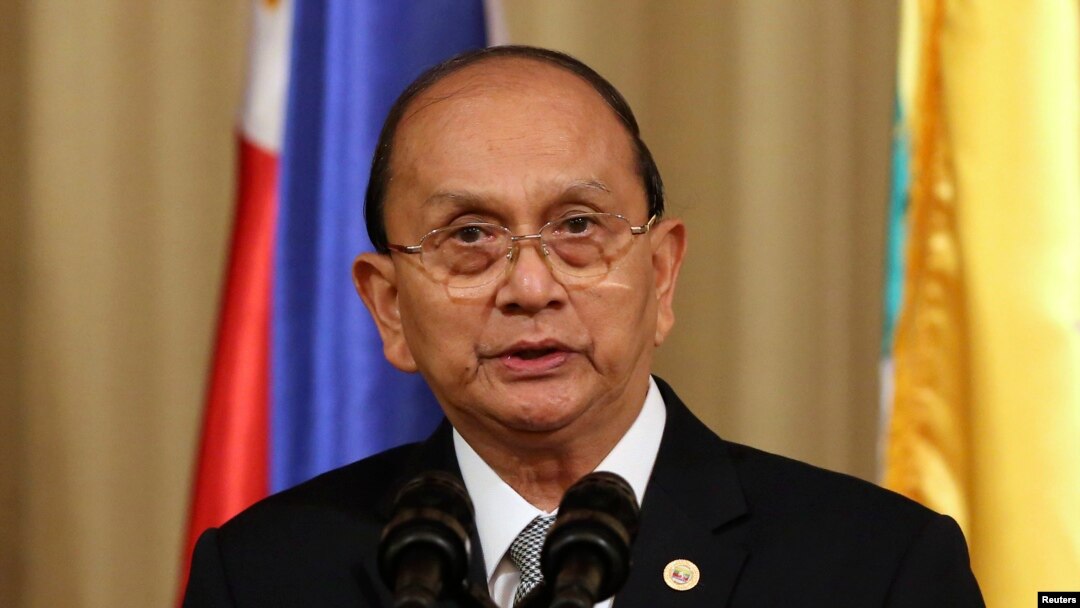Five weeks after Burmese President Thein Sein's self-imposed end-of-the-year deadline to release all political prisoners passed, activists told VOA dozens remain jailed and many more are being arrested.
The Assistance Association for Political Prisoners (A.A.P.P.) said 33 political inmates have yet to be released following a December 30 presidential amnesty, after which government officials declared the issue settled.
A.A.P.P.'s Bo Kyi said Friday in phone interview with VOA any government insistence the problem has been resolved is dishonest.
"I do not agree [with] it. I believe there are still political prisoners in Burma -- at least 33. In addition, more [have been] arrested in 2014," said Bo.
A.A.P.P. also said that at least 10 people have been arrested for political reasons since the beginning of the year, and many of them have been held under the same laws for which others have already been granted amnesty.
The group alleged at least 148 more await sentencing. Many of those activists were not covered under previous amnesties because they also face criminal charges, making their exoneration more complicated.
However, activists say this is no excuse for the government to move slowly. Bo Kyi said he is still waiting for the government to reconvene its Political Prisoners Assessment Committee, tasked with identifying those to be freed, so that the issue can be resolved.
He cautioned, however, against focusing solely on the specific number of political prisoners in Burma, which is also known as Myanmar, without addressing the root cause of the problem.
"The issue of political prisoners is not only for the numbers, but for the rule of law, for political freedom. How parliament will change oppressive laws -- those are the main things to solve the problem of political prisoners in Burma. Otherwise, there will be political prisoners," said Bo.
Several laws are still in place that activists say are oppressive. These include the Peaceful Assembly law - used to tightly restrict protests, the Emergency Provisions Act - used to charge political activists and journalists, and the Unlawful Associations Act - used to prosecute political dissidents.
The Assistance Association for Political Prisoners (A.A.P.P.) said 33 political inmates have yet to be released following a December 30 presidential amnesty, after which government officials declared the issue settled.
A.A.P.P.'s Bo Kyi said Friday in phone interview with VOA any government insistence the problem has been resolved is dishonest.
"I do not agree [with] it. I believe there are still political prisoners in Burma -- at least 33. In addition, more [have been] arrested in 2014," said Bo.
A.A.P.P. also said that at least 10 people have been arrested for political reasons since the beginning of the year, and many of them have been held under the same laws for which others have already been granted amnesty.
The group alleged at least 148 more await sentencing. Many of those activists were not covered under previous amnesties because they also face criminal charges, making their exoneration more complicated.
However, activists say this is no excuse for the government to move slowly. Bo Kyi said he is still waiting for the government to reconvene its Political Prisoners Assessment Committee, tasked with identifying those to be freed, so that the issue can be resolved.
He cautioned, however, against focusing solely on the specific number of political prisoners in Burma, which is also known as Myanmar, without addressing the root cause of the problem.
"The issue of political prisoners is not only for the numbers, but for the rule of law, for political freedom. How parliament will change oppressive laws -- those are the main things to solve the problem of political prisoners in Burma. Otherwise, there will be political prisoners," said Bo.
Several laws are still in place that activists say are oppressive. These include the Peaceful Assembly law - used to tightly restrict protests, the Emergency Provisions Act - used to charge political activists and journalists, and the Unlawful Associations Act - used to prosecute political dissidents.



